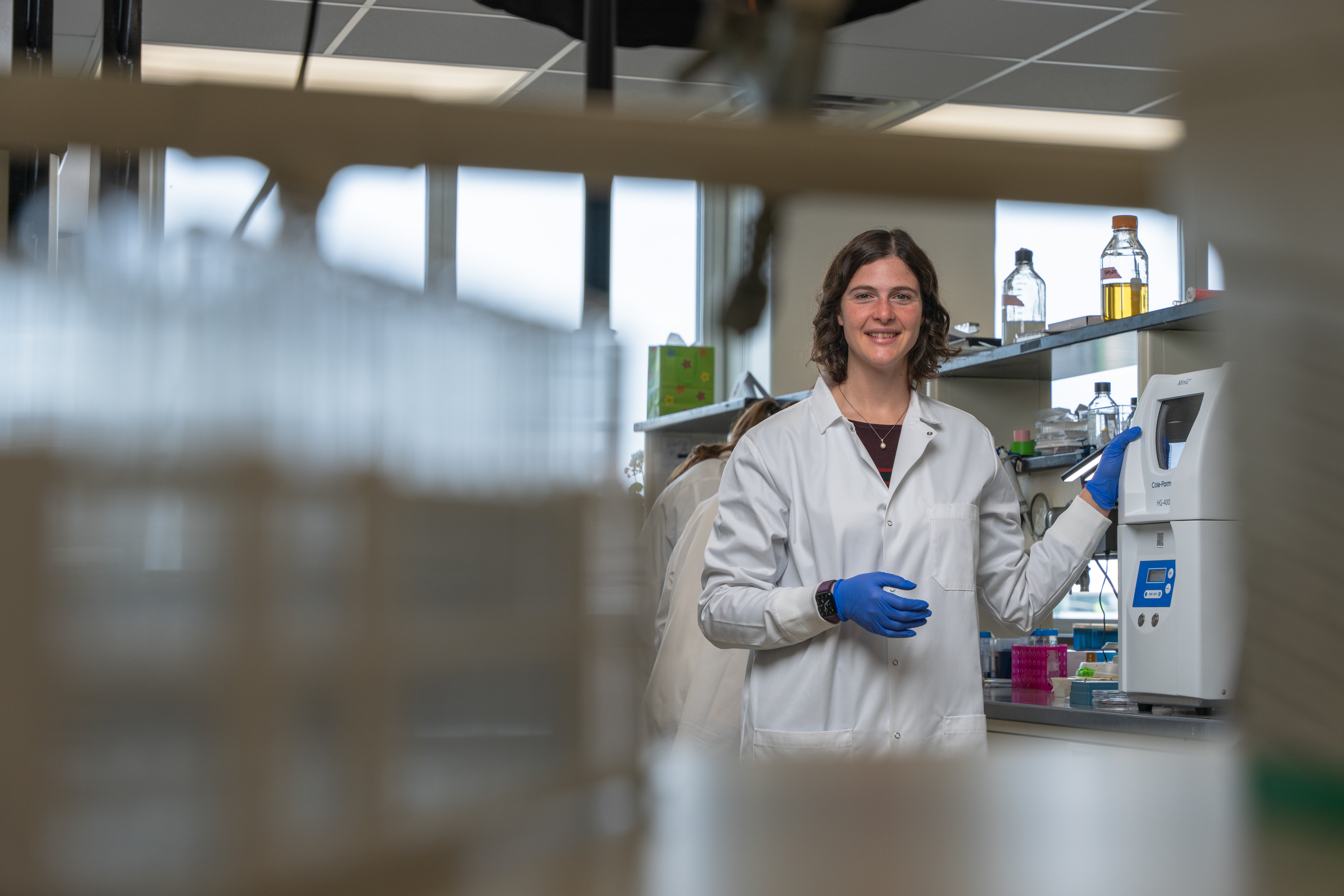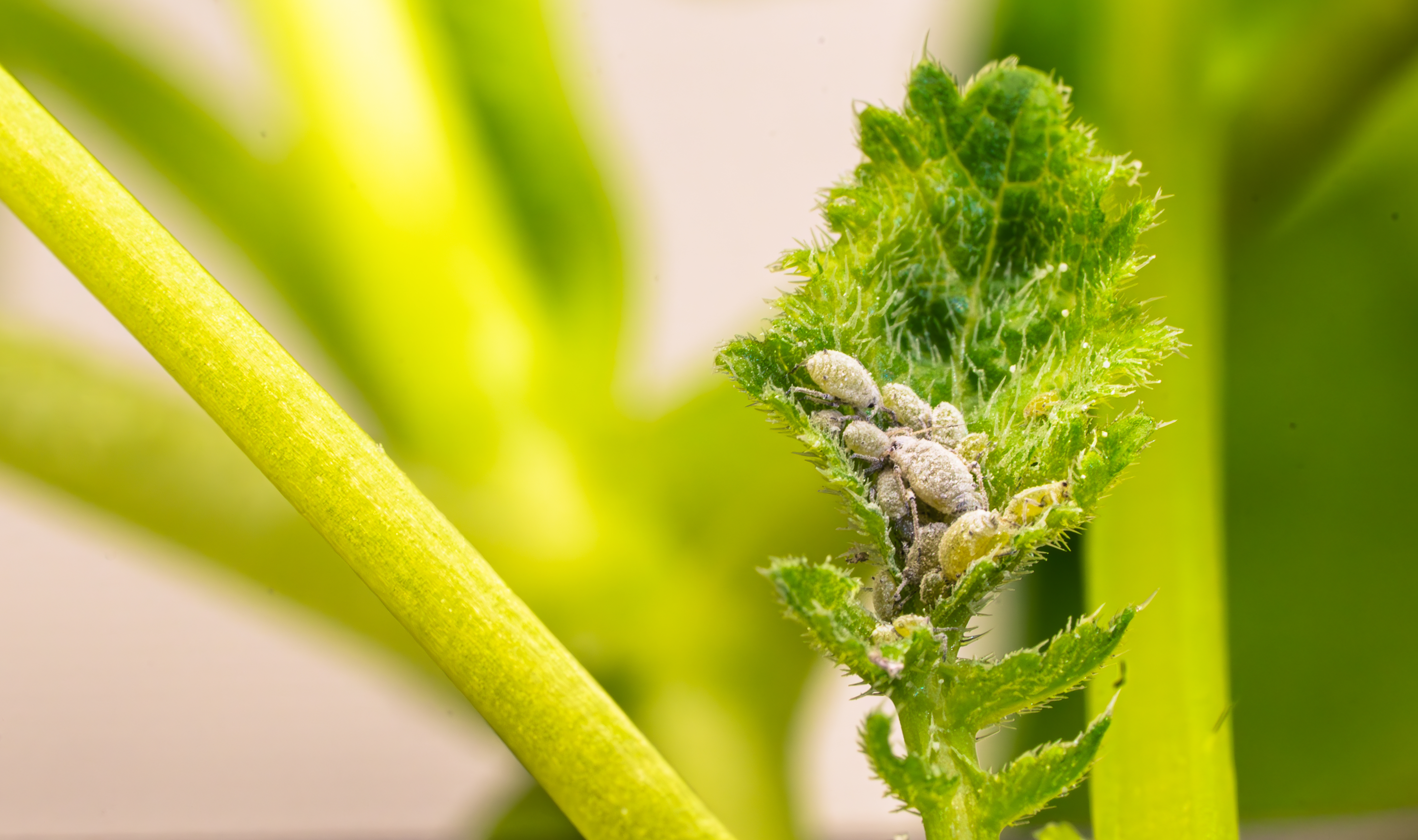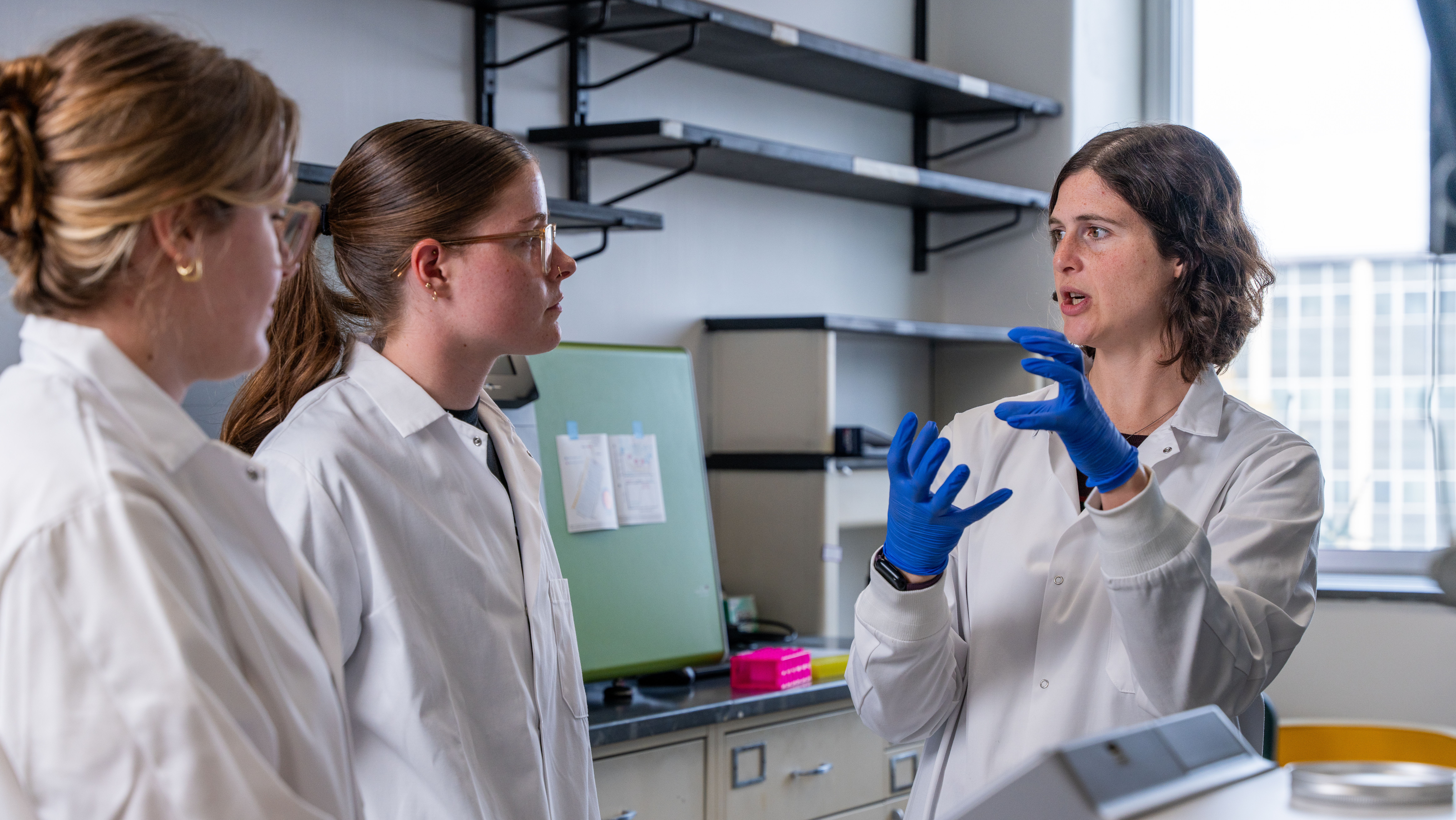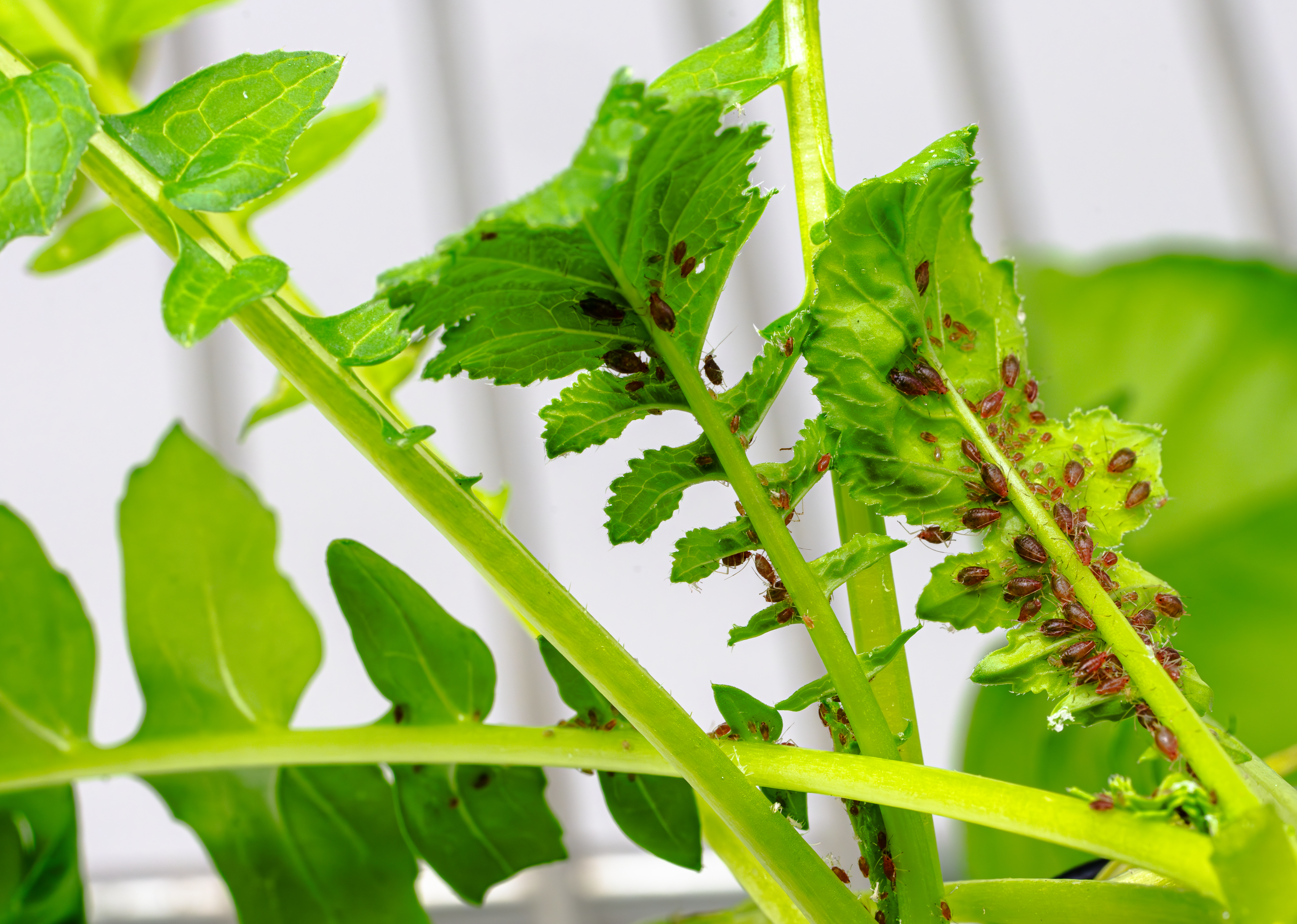Uncovering plant resistance through aphids saliva
Article Highlights
- Research associate Hillary Fischer received $225,000 grant from USDA for her research in aphid saliva.
- Her work will help scientists further understand how plant-aphid interaction impacts plant metabolism, which has major potential applications in the field of plant health.

Aphids are small yet mighty. In the right conditions, these tiny creatures can be
among the most destructive insect pests

Aphids are tiny sap-sucking insects that can weaken the plants they feed on. They are also carriers of various plant viruses, which cause and exacerbate crop loss. As pests, aphids can be incredibly difficult to control due to their ability to reproduce asexually and in large numbers and rapidly develop resistance to insecticides.
“Aphids are so important in crops,” Fischer said. “I've worked on the sugarcane aphid, which I think is one of the most damaging pests of sorghum and other small grains in the U.S., and it can cause anywhere from 20% to 100% loss in a field.”
For decades, the primary focus of aphids’ saliva research was on protein molecules, which can break down plant defenses. However, Fischer’s findings revealed that small molecules present in aphid saliva can play a critical role in manipulating plant defense mechanisms as well. “Those small molecules are actually really abundant and robust in aphid saliva, and no one had ever thought of that,” Fischer said. “Small molecules are quite important. We don't think about it, but for us, a lot of drugs we take, for example, are small molecules.”

With the interdisciplinary expertise of other researchers at MSU, Fischer discovered compounds that are commonly present throughout all sampled aphids, such as citric acid, malic acid, and dipeptides. Hillary believes that these compounds work together, with each one playing a different but critical role in manipulating the plant-aphid interaction.
Fischer especially enjoys the wonderfully collaborative environment and innovative facilities here at MSU laboratories. She refers to the aphids in her lab as “the ladies,” since the lab aphid population is entirely female due to clonal asexual reproduction in the lab setting. “When I'm working with them, I always say, ‘I'm going to go see my ladies,’” Fischer said. “So, I have my lab ladies because my lab is entirely female, and I have my aphid ladies as well. Both groups are critical to my success.”
In addition, Fischer is working to understand how aphid salivary metabolites are working with plant metabolism, potentially to supplement important compounds that both the plant and aphid need to survive. This has possible implications in helping future researchers understand plant defense mechanisms and develop a more comprehensive approach to pest management for crops across the U.S. “If we can make the plant a little bit more durable after aphid infestation and hold on a little bit longer for the natural enemies to eat aphids or for pesticides to kill aphids, then that works in a nice holistic system for better pest management,” Fischer said.
The $225,000 AFRI grant will enable Fischer to conduct more extensive and holistic research on aphids’ saliva, since understanding of individual compounds and molecules within aphids’ saliva is still under-researched. Furthermore, Fischer looks forward to pursuing a career in teaching, where she can become a professor and pass on her passion to the next generation of scientists with the help of MSU faculty. “I'm really happy to be here and just have people that I can go reach out to, because no man is an island in science, and I am the best example of that,” Fischer said.

- Categories: